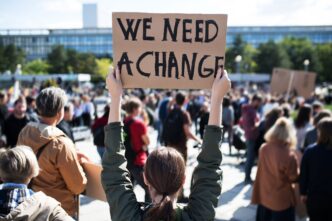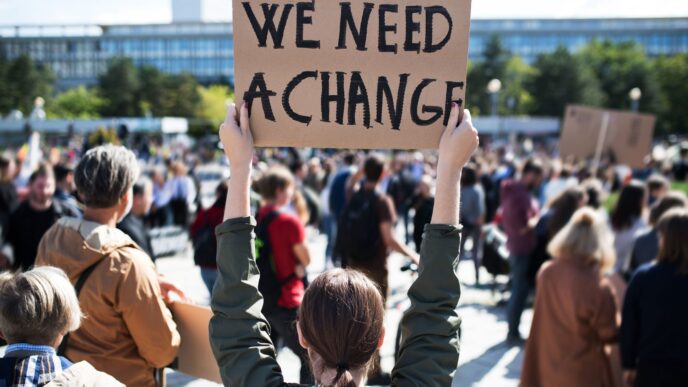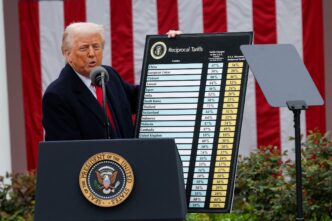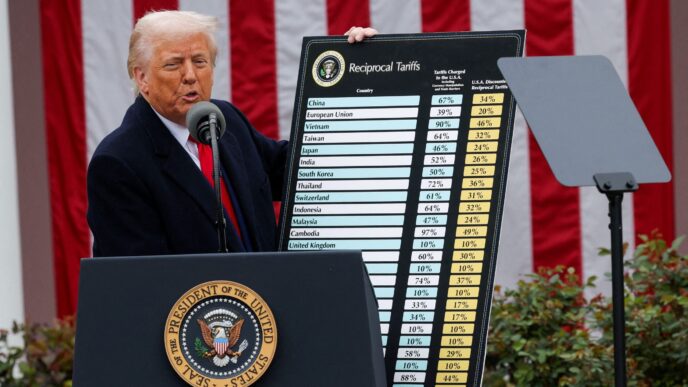Corporate diplomacy is the practice of engaging with political, social, and cultural stakeholders to protect and advance a company’s interests in a complex global landscape. Unlike traditional public relations or basic government affairs, corporate diplomacy involves strategic relationship-building and consensus-seeking across diverse environments – often where regulatory frameworks, local customs, and power dynamics vary significantly. At its core, corporate diplomacy recognises that business outcomes are influenced by forces extending well beyond market economics, including geopolitical tensions, cultural values, and public sentiment. By taking a long-term approach grounded in mutual understanding and trust, organisations can create smoother pathways for expansion, protect supply chains, and minimise conflict with regulators or host communities.
In an era of rapid political shifts, trade disputes, and fluctuating regulatory regimes, geopolitical events can disrupt operations in ways that are both swift and far-reaching. For multinational corporations, tensions in a single locale – such as a sudden tariff increase, a change in government leadership, or social unrest – can have ripple effects on supply chains, investor confidence, and consumer sentiment worldwide. Moreover, when a company is perceived as unprepared or dismissive of local concerns, reputational damage can be severe, eroding stakeholder trust across regions. As a result, proactively assessing and mitigating geopolitical risks is not simply a defensive manoeuvre – it’s a strategic imperative. Businesses that incorporate diplomacy, foresight, and cultural nuance into their planning and operations position themselves to navigate volatility, maintain market access, and uphold a strong global reputation, even in tumultuous times.
Understanding Geopolitical Risk in a Business Context
Geopolitical risks take on various forms, each presenting distinct threats to business continuity. Political instability, for example, can manifest through sudden regime changes, coups, or prolonged protests that disrupt a company’s ability to operate. Shifting regulatory environments – such as sudden tariff hikes or policy reversals – can upend pricing strategies or trade routes overnight. Sanctions imposed by one government on another may limit access to crucial markets or resources, while expropriation risks in certain countries raise the spectre of state seizure of corporate assets. Social unrest, whether in the form of labour strikes or large-scale public demonstrations, can halt production and supply chains. Finally, cross-border tensions – including military conflicts or territorial disputes – can heighten security challenges, impede transportation corridors, and unsettle investor confidence. Understanding these categories in detail is vital for multinationals, as each type of risk demands different tactical and diplomatic responses.
For companies operating in multiple jurisdictions, geopolitical risks can quickly create ripple effects beyond the immediate region in crisis. An unexpected coup or major policy shift in one country might delay shipments, causing downstream supply chain bottlenecks on other continents. Fluctuations in currency valuations or investor confidence can reverberate in global capital markets, affecting corporate stock prices or the availability of credit. Additionally, reputational damage can arise if an organisation is perceived as complicit with, or indifferent to, controversial local political or social developments. Consumers and investors in more stable markets may react negatively to any sign that the company lacks cultural sensitivity or responsible conduct abroad. In short, geopolitical volatility doesn’t remain confined to a single locale; instead, it can undermine broader corporate goals – ranging from product rollouts and revenue targets to brand image and stakeholder trust. By approaching these risks proactively through corporate diplomacy, companies can insulate themselves against turmoil and demonstrate a commitment to ethical, sustainable operations in every region they touch.
Core Pillars of Corporate Diplomacy
- Stakeholder Engagement: Effective corporate diplomacy hinges on building and sustaining relationships with a broad range of stakeholders – beyond the usual customers and shareholders. Governments, local communities, non-governmental organisations (NGOs), and even cultural influencers can shape a company’s operating environment. By proactively reaching out and listening to these groups, businesses gain critical insights into local priorities, pain points, and potential flashpoints. When officials and community leaders trust that a company is committed to mutual benefit (rather than mere transactional gains), they are more inclined to offer support or leniency in times of stress. This approach not only eases negotiations and regulatory clearances but also garners early warnings of emerging policy shifts or social tensions, allowing the company to adapt before risks become crises.
- Strategic Communication: Crafting messages that resonate with diverse audiences – while remaining aligned with global corporate objectives – is at the heart of diplomatic engagement. In geopolitically sensitive regions, how a company frames its commitments, values, and intentions can significantly influence perceptions among local officials and citizens. An overly aggressive or tone-deaf public stance can stoke resistance, whereas transparent and culturally attuned messaging can foster goodwill. Successful communicators often balance universal brand principles (like quality, innovation, or sustainability) with localised content that addresses regional histories, customs, and aspirations. Consistent, empathetic communication – backed by genuine action – also helps defuse suspicion, avoiding controversies that might escalate into public relations crises or political standoffs.
- Risk Assessment and Scenario Planning: Incorporating geopolitical analysis into broader enterprise risk management (ERM) is essential for pre-empting disruptions. Scenario planning exercises – where cross-functional teams simulate potential events like sudden regulatory overhauls or outbreaks of civil unrest – can reveal vulnerabilities in supply chains, workforce stability, or brand reputation. By envisioning multiple “what if” scenarios, leaders can outline response strategies, build contingency plans, and develop communication playbooks tailored to each plausible outcome. This proactive stance enables faster, more cohesive decision-making when real crises arise. Moreover, ongoing intelligence gathering – through partnerships with political analysts or local experts – keeps leadership informed of shifting undercurrents, ensuring the organisation is never caught flat-footed by abrupt policy changes or social upheavals.
- Cultural Intelligence and Sensitivity: Beyond laws and regulations, every region has its own tapestry of social norms, historical sensitivities, and cultural taboos. Being oblivious to these nuances can spark misunderstandings or resentment that hinder business objectives. Corporate diplomats who cultivate high cultural intelligence – knowledge of etiquette, religious practices, and societal hierarchies – can negotiate more effectively and forge stronger bonds with local stakeholders. This sensitivity ranges from small gestures, like respecting traditional greeting customs, to more complex actions, such as adapting marketing strategies or product designs to suit local tastes. By demonstrating a genuine effort to understand and honour local perspectives, organisations minimise friction and position themselves as respectful, responsible players in any geopolitical arena.
External Viewpoints
No matter how robust an internal team may be, external perspectives often prove invaluable when mapping geopolitical risks. Partnering with specialised consultancies, think tanks, or academic institutions can yield deeper insights into regional power structures, historical grievances, or upcoming policy shifts. Such external advisors bring fresh data, unbiased assessments, and a network of local contacts that can help validate or refine a company’s diplomatic approach. Similarly, tapping into local civil society organisations, NGOs, or cultural bodies can inform more nuanced stakeholder engagement strategies, reducing the likelihood of missteps or public backlash. By integrating these external viewpoints into scenario planning and decision-making processes, organisations elevate their strategic agility and build credibility with both local and international observers.
The Road Ahead: Trends and Opportunities
As global power balances shift, companies face a dynamic geopolitical backdrop that demands heightened awareness and adaptability. Trade alliances can change swiftly, while once-stable governments may adopt more protectionist policies or pivot toward different strategic partners. These unpredictabilities may lead to sudden tariff hikes, regulatory clampdowns, or new social expectations that directly affect corporate operations. To stay ahead, organisations must enhance their geopolitical monitoring – partnering with local experts, or specialised risk consultants to forecast emerging political currents. This proactive posture allows companies to integrate geopolitical considerations into broader strategy discussions, ensuring expansions, investments, and supply chain adjustments are made with a clear-eyed view of possible policy shifts or cultural flashpoints.
In today’s hyperconnected world, digital platforms serve as both a powerful communication channel and a potential minefield of reputational risks. Social media can swiftly mobilise public sentiment, amplifying local grievances into global controversies overnight. Conversely, well-planned digital diplomacy allows organisations to proactively share their perspectives, respond to criticisms, and engage stakeholders in a more interactive, transparent manner. Data analytics and real-time monitoring tools can help detect early signals of unrest, offering clues about shifting sentiment that may precede on-the-ground demonstrations or regulatory crackdowns.
By skilfully navigating online discourse – balancing global brand messaging with localised nuance – corporate diplomats can forge direct connections with consumers, activists, and officials alike, demonstrating the company’s commitment to respectful engagement in digital as well as physical realms.
In essence, the road ahead for corporate diplomacy involves embracing the fluidity of global politics, forging alliances that prioritise collective gains, and harnessing digital platforms for constructive dialogue. Companies that anticipate these trends, refining their approaches to diplomacy and cultural intelligence, will be better positioned to mitigate risks, seize opportunities, and maintain stakeholder trust in an ever-changing geopolitical landscape.
Conclusion
Amid the complexities of cross-border trade, shifting political alliances, and rapidly evolving regulatory landscapes, corporate diplomacy emerges as a strategic asset rather than a reactive measure. By combining risk assessment, stakeholder engagement, and cultural intelligence, organisations can navigate volatile environments with greater assurance. The pillars of corporate diplomacy – such as building trust through transparent communication, collaborating with diverse groups, and integrating geopolitical insights into broader risk management – provide a framework for turning potential threats into sustainable opportunities. Far from being an isolated function, this diplomatic mindset enriches virtually every dimension of global business, from supply chain resilience to long-term brand reputation.
Companies that have not yet embraced a robust diplomatic strategy should begin by evaluating their existing structures and capabilities. Questions to consider include: Are there dedicated resources for geopolitical monitoring? Do executives and frontline managers possess the cultural awareness and negotiation skills needed to diffuse tension? Are our stakeholder relationships – governmental, community-based, and NGO-focused – built on genuine dialogue or merely transactional interactions? Addressing such questions can illuminate gaps that may leave organisations vulnerable to sudden disruptions.
Next steps might involve forming cross-functional diplomacy teams, investing in scenario-planning workshops, or partnering with external experts who can offer nuanced perspectives on regional power dynamics. Moreover, explicitly connecting diplomacy efforts with overall corporate goals – such as expanding market presence or upholding sustainability targets – ensures that these initiatives receive the executive backing and resources they need to be truly impactful.
As geopolitical uncertainties intensify and stakeholder expectations evolve, corporate diplomacy will likely become an even more defining factor in competitive differentiation. Businesses that proactively adapt – developing sophisticated risk frameworks, nurturing enduring local partnerships, and communicating their intentions and achievements with authenticity – will be best placed to thrive. By viewing diplomacy as a dynamic, forward-looking approach rather than a crisis-time fix, organisations can safeguard their global standing and set the stage for enduring growth, innovation, and trust in a rapidly changing world.













